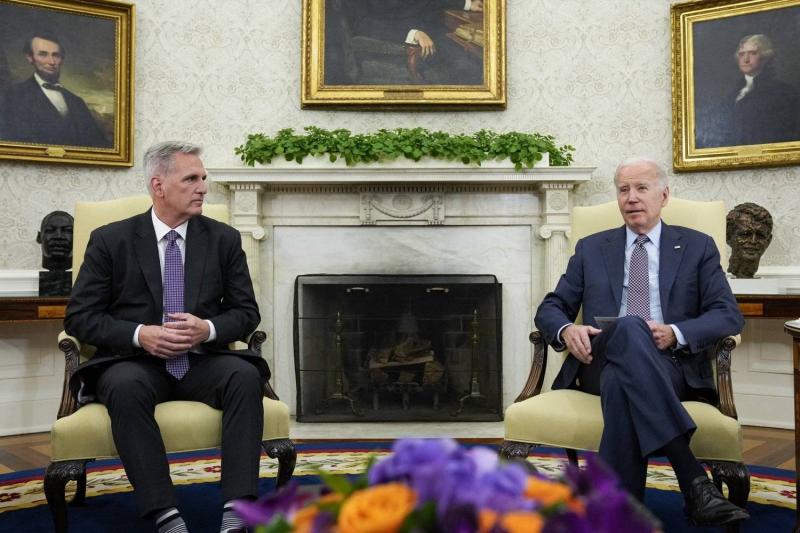U.S. President Joe Biden and Republican House Speaker Kevin McCarthy reached a preliminary agreement to raise the federal government's debt ceiling of $31.4 trillion, thus ending a months-long crisis. However, the announcement of the agreement was made without any celebratory events and used terms that reflect the bitter nature of the negotiations and the difficult path the agreement will face in Congress before the U.S. risks defaulting on its debts in early June. McCarthy tweeted: "I just got off the phone with the president a bit ago. After he wasted time and refused to negotiate for months, we've come to an agreement in principle that is worthy of the American people."
Biden described the agreement in a statement as "an important step forward," stating: "The agreement represents a compromise, which means not everyone gets what they want; this is the responsibility of governance." The agreement raises the debt ceiling for two years and reduces spending during the same period. It also includes the recovery of unused funds allocated for COVID-19 relief and accelerates the approval process for certain energy projects and some work requirements for food aid programs for poor Americans.
Biden and McCarthy had a 90-minute phone call on Saturday to discuss the agreement. McCarthy told reporters at the Capitol: "We still have more work tonight to finalize the text of the agreement." He indicated that he "expects to complete the drafting of the agreement's text today, Sunday, and then he will speak to Biden." A vote on the agreement is anticipated for Wednesday.
McCarthy added: "It includes historic spending cuts and subsequent reforms that will move people from poverty to the workforce... There are no new taxes and no new government programs." A source familiar with the negotiations indicated that "the negotiators agreed to maintain non-defense spending at the current level for another year and increase it by one percent in 2025."




